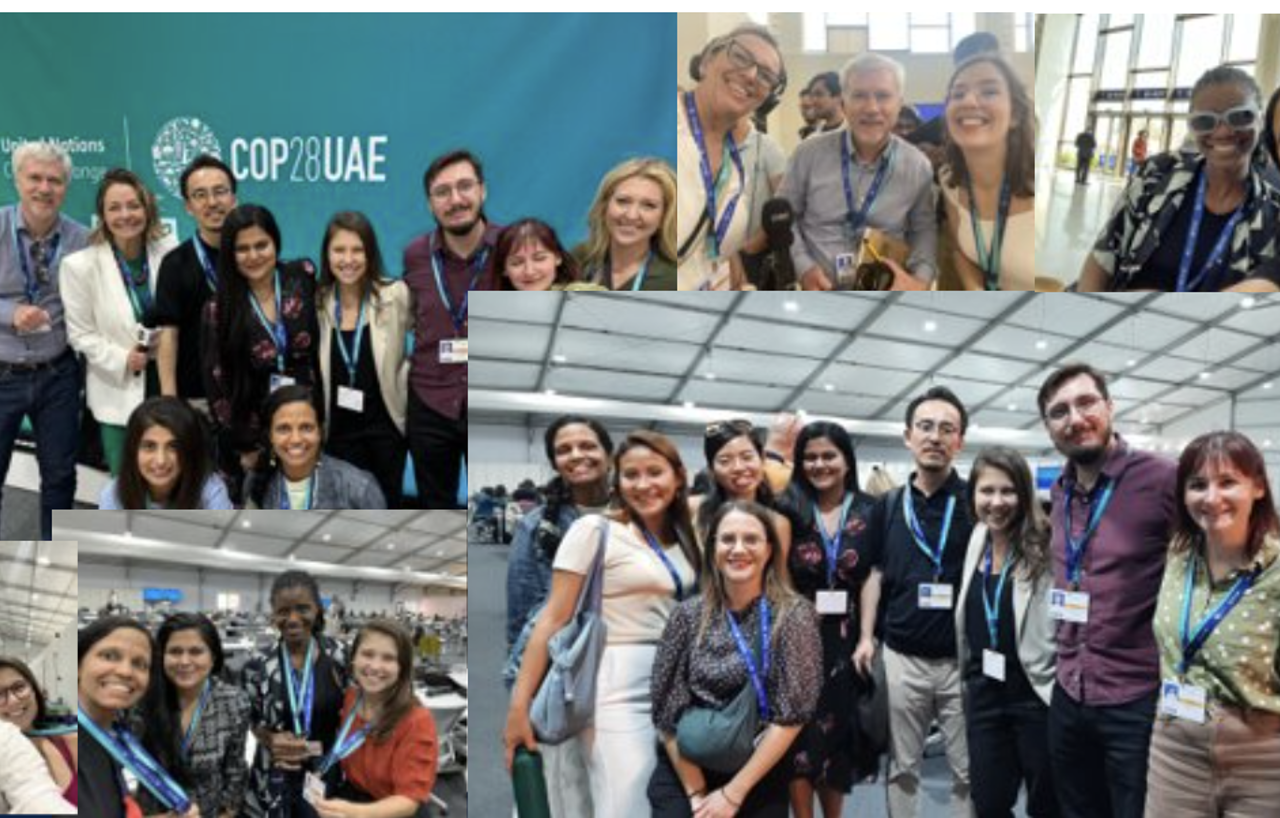Ten questions with Mitali Mukherjee
Laudes Foundation works with leading practitioners across industries to champion the acceleration to a green, fair and inclusive economy. We asked Mitali Mukherjee from Reuters Institute for the Study of Journalism what her work in the narratives field means to her, and how it contributes to the transition, in ten questions.
When did you know you wanted to work in this field?
I grew up in Delhi, one of the world’s most polluted cities. Climate, as it is for many of us, is a lived experience. Having worked in both journalism and a think-tank, I think climate narratives has always been a part of my work and passion.
What’s the best piece of advice you’ve ever received?
That building something meaningful and impactful takes time, effort and support.
Education or practical experience – what do you value more?
So difficult to pick one – learning as you do, or practical experience for a journalist is absolutely critical to understanding a challenge. But so is having the confidence to effectively communicate about that challenge and possible solutions, which is where education plays a huge role,
What book last changed your thinking?
Memory of Water by Emmi Itäranta, a story about a drought ravaged world is a stunning read.
What do you find most fulfilling in your work?
Building professional communities where talented and passionate journalists explore ways to report more confidently around climate. They are the nodal points that inform a wider public, ensure accountability from policy makers and create positive change.
What is the biggest hurdle you have faced in the past year and how did you overcome it?
There is so much to do and capacity, in terms of people, resources and time is a running challenge. One learning for me has been to consciously move from the ‘do more’ towards a ‘do it in a step ladder’ approach where we double down on getting better and better at our core goals and then build up from that space.

Alumni and members of the OCJN meeting in person in December 2023 at COP28 in Dubai, UAE
At Laudes we know that we need to work collectively to change the systems that affect all of us. What is one way you’ve achieved impact or moved the needle in collaboration with another organisation?
The Oxford Climate Journalism Network that I oversee has now engaged with over 500 journalists from 116 countries, more than two thirds of those from the global south. Collaboration is the core of who we are and what we do. We have, over the years worked with organisations doing outstanding work in climate including the Grantham Institute for Climate Change and the Environment, Carbon Brief, the Smith School, University of Exeter and many others to build climate journalism, its reach and impact.
How has your vision changed since you first started the organisation?
From when The Oxford Climate Journalism Network began, our network has become a critical hub to build a deeper understanding of climate change. My vision is borne from my strong belief that climate is not one story or one news report. Everything must have a climate lens to it, to be truly reflective of the world we live in. Climate is a lens that newsrooms across the world must apply to each and every story – business, politics, fashion or sport.
What is one thing your organisation needs most to be successful?
I am hugely proud and grateful to have a fantastic team and extremely supportive partners for the work we do at The Oxford Climate Journalism Network. One thing that would make us plan better is the ability to have a longer runway in terms of resources, while mapping out priorities and programmes.
If you had to choose one challenge you [and your team] need to tackle to accelerate this transition, what would that be?
Ensuring journalists have the best information and context possible while reporting on extreme weather events, increasing in frequency and intensity worldwide. And simulatenously, democratising access to climate expertise. We have to ensure we support journalists – and audiences from across the global south - with climate news that is informed by them and relevant to them. And the first step towards that is creating more spaces for them.
About Mitali Mukherjee
Mitali Mukherjee is Director of the Journalist Programmes at the Reuters Institute for the Study of Journalism, University of Oxford.
She is a political economy journalist with more than two decades of experience in TV, print and digital journalism. She is a Chevening fellow for the South Asia Journalism Fellowship 2020, a Raisina Asian Forum for Global Governance Young Fellow 2019 and a 2017 fellow of
the Australia India Youth Dialogue. In 2020, she was nominated for the prestigious Red Ink Awards in India for two of her business stories.
Over the course of her journalistic career Mitali has been Consulting Business Editor at The Wire and Mint. Prior to that she was Markets Editor at CNBC TV 18 and Prime Time Anchor at TV Today and Doordarshan. She has been a Fellow at The Observer Research Foundation (ORF) where she led Gender Initiatives for the organisation. Mitali has also co-founded two start-ups that focused on civil society and financial literacy.
She is a gold medallist in Television Journalism from the Indian Institute of Mass Communication (IIMC) New Delhi, 2001 and a gold medallist, Political Science Hons., Delhi University, 2000. She is also a TEDx speaker.
-

By Mitali Mukherjee
Director of Journalist Programmes, Reuters Institute for the Study of Journalism, University of Oxford
